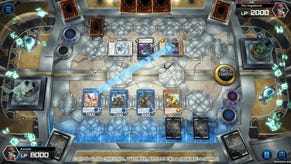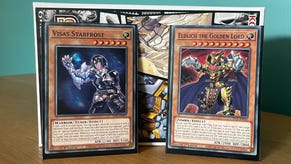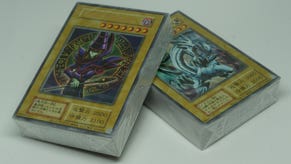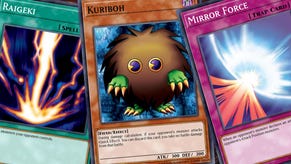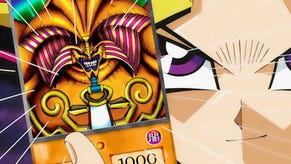Digital Duels: How Yu-Gi-Oh! players are enjoying the TCG - without needing cards
Cyber Spike.
The release of Yu-Gi-Oh! Master Duel at the start of the year was an enigma. While we’ve had plenty of official Yu-Gi-Oh! video games over the years, many struggle to reach an audience beyond the core fanbase. Master Duel was different: sold as a free-to-play return to their childhood, millions flocked to the newly-released app to try out classic decks they enjoyed as a kid or experience just how much the trading card game had evolved from their heady childhood days.
Since its early days dominating playgrounds, the card game has always been merely one method to jump into the world of Yu-Gi-Oh! Nowadays, the game’s digital outings play an almost necessary role in not just introducing or expanding the TCG to new audiences, but allowing long-term players to experiment and test strategies against AI and online opponents before taking those strategies into the real world. Virtual simulators aren’t just a sideshow in Yu-Gi-Oh! - they’re essential to its prosperity.
Official digital adaptations of the card game have existed since the origins of Yu-Gi-Oh! as a franchise. As soon as the card game burst onto the scene, video games like Yu-Gi-Oh! Forbidden Souls - released for the original PlayStation months after the TCG debuted in 1999 - soon followed. Not that every game strove for an accurate recreation of the TCG; PlayStation 2 title Yu-Gi-Oh! The Duelists of the Roses remains a beloved game precisely because it’s a one-of-a-kind War of the Roses-inspired strategy game only tangentially related to the wider series. Yet each ultimately offered a way for fans and players to immerse themselves in the world of Yu-Gi-Oh! without pulling out a physical deck.
Particularly for those who couldn’t afford to pay for the latest decks and cards, these were an invaluable and fun way to play, even offering a path into the TCG with free promo cards to sweeten the deal.
Yu-Gi-Oh! has evolved drastically from these early days. While the game remains targeted primarily at younger audiences, particularly in Japan, players in competitive settings and outside Japan have trended older as the series has matured. In turn, these players aren’t seeking out digital adaptations of the trading card game for the same reasons they were before. While some apps continue to target newcomers and the younger demographic and recreate iconic moments from the anime, or offer all-new ways to play the game, like Rush Duel, both official and unofficial simulators are more and more geared towards the competitive scene.
In this vein, Master Duel is Konami’s attempt to create a game that attempts to straddle these two demographics within a free-to-play structure. While still lacking some of the very latest cards available to players of the physical game, the game boasts regular updates, comprehensive online matches and official tournament support, offering a way to replicate the social and competitive aspects of Yu-Gi-Oh! without the need to whip out the playmat. For new players, tutorials and trial decks are there to help people learn the ropes or brush up on their knowledge.
Monetary investment in Master Duel feels significantly lower than for a physical deck.
In a world where COVID has impacted and continues to impact in-person competition, with some players lacking any form of local competitive scene to play with others, Master Duel is far from a mere simulator. For many, it’s the only way they can participate in the game with others in online communities. “Had I not downloaded Master Duel, I wouldn’t have had a way to practise such an entertaining hobby,” explains Nicolas, a long-time fan of the franchise from Columbia who has been following the franchise since 2009. Since downloading Master Duel a month ago, they admitted to putting over five hours a day into the game as it offered a cheap way to invest in a franchise that would simply be too expensive for them otherwise.
When top Yu-Gi-Oh! decks cost triple-figure sums to play at full strength, Master Duel offers a way for players to use decks that are unaffordable to them in real life. “Monetary investment feels significantly lower than for a physical deck, even before considering the necessity of physical accessories like playmats and deck boxes,” notes another player who has been involved in the game since 2018. “Plus, for Master Duel specifically, the digital experience offering things like special cut-in animations, music and ranked progression enhances the play experience.”
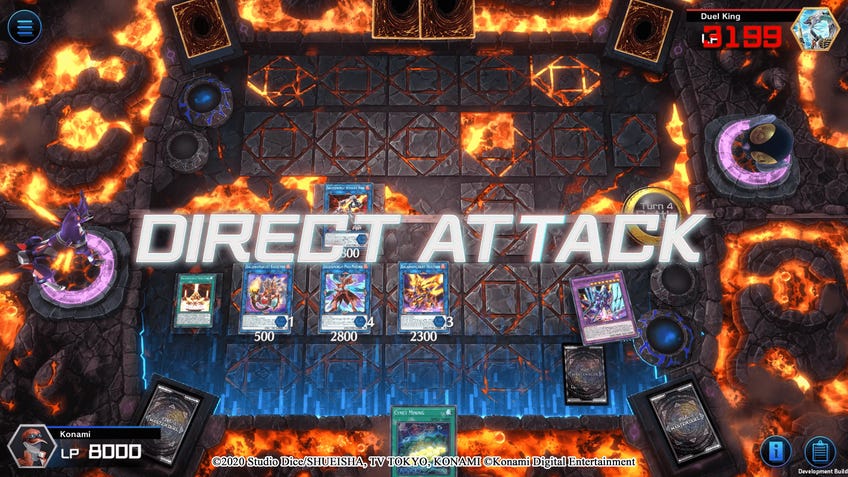
While Master Duel has undoubtedly been a success for Konami, it’s far from perfect in the eyes of many more dedicated TCG players. Of the almost 40 Yu-Gi-Oh! players I spoke with, those who appreciated Master Duel’s offerings tended to be those less interested in playing the physical trading card game at the highest level or were players for whom the app is their only method of playing the TCG. For these people, space and cost often limited their ability to play Yu-Gi-Oh! any other way.
Those who compete in official TCG tournaments were the players most critical of Master Duel, many citing its differentiation from official TCG banlists and card pools as its main drawbacks. Whereas Magic: The Gathering Arena and Pokémon TCG Online offer a digital equivalent to the real thing with complete or near-complete card lists, Master Duel is missing too many recently-released and classic cards and has a different ban list that hurts its place for those looking for a place to practise between in-person events.
That space has instead been filled by the open secret that is fan-created unofficial emulators and simulators. These offer a free proving ground for players to test decks and strategies before taking them into real-world competitive play and can be credited for helping top-level players refine the plays that propel them to victory in major tournaments. From web simulators like the now-shuttered Dueling Network and successor Duelingbook to apps like YGOPro, numerous fan-made offerings have sprouted up to fill the role Konami’s official efforts leave open as a tool for experimentation.

These fan-made platforms are released by and for the community which plays them. Whereas Master Duel abides by its own card pool and banlist, apps like YGOPro are designed to offer parity with the official TCG, featuring every Yu-Gi-Oh! card ever released and even offering translated versions of cards only available in Japan for players to test before their English-language release, while enforcing the up-to-date TCG and OCG banlists.
COVID only increased these apps’ presence within the Yu-Gi-Oh! community as physical in-person events became an impossibility, but even before the pandemic and as real-world competition resumes these unofficial simulators remained influential. Without needing to purchase cards or decks, while still having the option to compete against human opponents, YGOPro makes it easy to recreate decklists seen online to try for yourself. Additionally, while Master Duel only offers single duels, these fan-made alternatives replicate the best-of-three matches seen in major tournaments. For those wishing to compete without being forced to hoard a massive collection or invest large sums of money in cards they may not need, these tools essentially allow people to ‘try before you buy’ the latest decks and cards.
“Being able to openly build a deck without restrictions is the single most important tool for budget players to get an idea of where they need to make their next purchase for the deck or to figure out what other cards would be decent substitutes,” argues Ryden, a player of seven years. I received similar responses from those who chose to play this and other unofficial simulators over games like Master Duel, with players noting deckbuilding and testing decks they may play in real-world scenarios as a major reason they regularly use these apps.
Perhaps most interestingly, of those I spoke to who use unofficial apps over Master Duel, a larger majority also invest in the TCG compared to Master Duel players - who typically saw the game as their primary or only way to play the game and didn’t collect physical cards. Indeed, those playing these unofficial simulators admitted that, were they ever to disappear, their likelihood of continuing to play and invest in the TCG would diminish. “I’d probably be less likely to buy decks in real life without knowing if I already enjoyed using the deck already,” admitted Chiko, a player since 2010.
The reality is that, in spite of their legally-dubious status, there’s no incentive for Konami to act on shutting down these unofficial ‘competitors’. Despite their use, trends in Google search results suggest that the limitations inherent to Master Duel haven’t hindered the app’s popularity as the official video game remains more popular than these fan-made alternatives. On top of that, if those using applications like Master Duel are more likely to go on to invest in the physical sets and support the card shops necessary for the game’s continued prosperity, it may be beneficial to turn a blind eye - as has mostly been the status quo for over a decade.
Being able to openly build a deck without restrictions is the single most important tool for budget players to get an idea of where they need to make their next purchase.
With Yu-Gi-Oh! continuing to be an expensive hobby for many, the existence of both Master Duel and community simulators is an arguably comfortable position for the game in 2022. Whether serving as a first step or experimental proving ground, both official and unofficial simulators play an invaluable role in shaping the modern state of the trading card game by bringing more players in and allowing long-term fans a way to test their strength before a major tournament.
Ultimately, Yu-Gi-Oh! is a social game, and both methods allow players to bridge the physical gaps between players and connect over a love for a franchise that has been with us for over 20 years. Beyond local competitions, these services allow players to compete against one another in one-off matches and online tournaments anytime and anywhere, making an often expensive hobby truly accessible for everyone. That can’t be a bad thing, can it?



